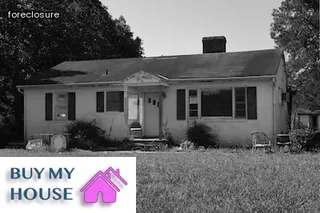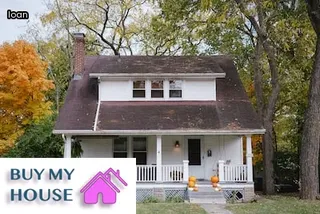Foreclosure is a process that occurs when a homeowner fails to repay their mortgage loan and the lender reclaims the home. It has severe implications for both property owners and lenders.
Homeowners are at risk of losing their home, which can have an emotional impact, along with financial repercussions as they may be forced to move out or incur costs associated with relocation. Lenders could face losses if the value of the foreclosed property is less than the outstanding loan amount or if they have to bear legal costs related to foreclosure proceedings.
Furthermore, it can take a long time for lenders to sell a foreclosed home and recoup their losses, meaning that in some cases, lenders might end up dealing with a financial loss regardless of whether they proceed with foreclosure or not. Giving your home back to the bank may be a better option in some circumstances as it allows homeowners to avoid incurring additional costs while still allowing them to walk away from their mortgage debt without having their credit score affected by foreclosure.

Voluntarily surrendering your home to the bank, also known as giving it back to the bank, is an option many people are considering when they are unable to make their mortgage payments. It's important to understand the pros and cons of this decision before taking action.
Many people find that voluntarily surrendering their home can be less damaging than foreclosure since it does not have as great an impact on their credit score. Additionally, some banks may be willing to offer a cash incentive for voluntarily surrendering your home or even waive late fees and penalties.
On the other hand, giving your home back to the bank is still considered a form of default and can result in legal proceedings against you. Also, while this option might reduce your debt burden in the short-term, you will still need to pay taxes on any forgiven debt amount and you may not be able to get another loan for some time after voluntarily surrendering your home.
Ultimately, whether or not voluntarily surrendering your home is better than foreclosure depends on each individual's unique financial situation and their ability to handle the consequences associated with either approach.
If you are facing foreclosure, you may have the option to give your home back to the bank through a deed-in-lieu of foreclosure process. This process can help you avoid having a foreclosure on your credit report and can be easier than going through the entire foreclosure process.
Before beginning the deed-in-lieu of foreclosure process, however, it is important to understand all of the details and implications of this decision. Start by speaking with your lender about their policies for accepting a deed in lieu of foreclosure.
They will provide you with an application that will need to be filled out and signed. You will also need to provide proof that you have explored other options for avoiding foreclosure such as loan modification or refinancing.
Additionally, you should review any applicable state laws regarding the use of deeds in lieu of foreclosures and understand the tax implications associated with this type of transaction if it is accepted by your lender. After completing all necessary paperwork and discussing any potential consequences with your lender, you can then decide if giving your home back to the bank via a deed-in-lieu process is right for you.

When returning your home to the bank, it is important to understand the full ramifications of such a move. The decision should not be taken lightly and all possible options should be weighed carefully.
It is possible, however, to avoid some of the penalties associated with giving your home back to the bank by taking steps such as speaking with your lender about any potential debt forgiveness programs or other incentives that can help reduce the financial burden of a foreclosure. Additionally, talking to a lawyer or housing counselor may provide additional insight into what options are available and how they can be used to benefit you in this situation.
Furthermore, finding out what local resources are available in terms of housing assistance and credit counseling might help you make an informed decision before proceeding down this path. Ultimately, understanding all aspects of returning your home to the bank will help you make an informed decision on whether it is better than foreclosure.
A deficiency judgment is a legal order issued by the court that requires a borrower to pay the difference between the loan balance and the amount for which their mortgaged property was sold in foreclosure. It is essentially a debt collection action taken against a homeowner who has defaulted on their mortgage payments.
If the sale of the home in foreclosure does not cover the total amount owed on the loan, then this judgment allows lenders to recoup that remaining balance from the homeowner. Depending on state laws, lenders may be able to pursue collection activities such as wage garnishment or bank account levies.
Unfortunately, these judgments can remain active and accruing interest for many years after foreclosure proceedings have been completed, making them difficult to discharge even through bankruptcy proceedings.

The credit impact of foreclosure is significant and can have long-term consequences. It will remain on your credit report for up to seven years, impacting your ability to borrow money or receive favorable interest rates in the future.
The foreclosure process can also damage your credit score, often by as much as 200 points or more. Not only that, but lenders may become less likely to lend to you in the future due to the risk associated with a foreclosure.
In comparison, giving your home back to the bank is not necessarily better than a foreclosure, yet it won’t have nearly as damaging an impact on your credit report and score as a foreclosure will. Ultimately, it’s important to weigh all of your options carefully before making any decisions about how best to handle a difficult financial situation.
If a homeowner is struggling to make their mortgage payments, they should consider taking early action to avoid foreclosure. Giving the home back to the bank, also known as deed-in-lieu of foreclosure, can be an option for those that have exhausted all other solutions.
This process involves voluntarily transferring ownership of the property back to the lender in exchange for a full release from any remaining debt. In some cases, this may be better than going through a traditional foreclosure, which can have long-lasting negative impacts on credit scores.
For homeowners who are facing financial hardship and are unable to keep up with their mortgage payments, it is important to discuss all available options with a professional before making any decisions. Depending on the situation, deed-in-lieu may provide relief from debt while avoiding foreclosure and its potential consequences.

When faced with the prospect of foreclosure, many homeowners consider giving their home back to the bank as an alternative. It is important to keep in mind that mortgage free living after foreclosure requires preparation and planning.
Before making any decisions, homeowners should reach out to a financial adviser or housing counselor for assistance in reviewing all options available. It is also important to understand the long-term implications of foreclosure and how it may affect future credit scores and ability to obtain new loans or lines of credit.
Taking these steps can help homeowners make informed decisions about their current financial situation and develop a plan for moving forward without a mortgage. Additionally, it is essential to create a budget that includes all expected expenses and income, so that once the mortgage is no longer an obligation, other debts can be paid off or savings can be allocated accordingly.
Ultimately, while giving your home back to the bank may be better than foreclosure in some cases, it is important to weigh all of your options before making any decisions.
When it comes to exploring options after foreclosure, giving your home back to the bank may be a less damaging alternative than foreclosure. This process, commonly known as voluntary repossession or deed-in-lieu of foreclosure, is when you sign over ownership of the home to the lender.
Although this option still has an effect on your credit score, it is typically less severe than that of foreclosure and allows you to avoid legal fees and court costs associated with foreclosures. Homeowners should assess their financial situation before deciding if voluntary repossession is right for them and understand that their lender may not accept this option.
It’s important to weigh all options carefully before making a decision in order to ensure the best outcome.

Forfeiting your home back to the bank is an option that many people consider when they are facing foreclosure. It can be a difficult decision, so it is important to understand the differences between foreclosing and forfeiting.
Foreclosure is a legal process in which the lender takes possession of the property due to non-payment of the loan. It can have long-term negative consequences for the borrower, such as damage to their credit score or difficulty obtaining future financing.
Forfeiting on the other hand is a voluntary action taken by the borrower that involves returning their property to the bank before foreclosure proceedings begin. It may provide some benefits not associated with foreclosure, including avoiding additional fees and having some control over moving out of their home on their own terms.
Both options require that all outstanding mortgages, taxes, and liens must be paid in full before relinquishing ownership of the home. The primary difference between foreclosure and forfeiting is that forfeiture does not appear on a person's credit report while foreclosure does remain on one's record for up to seven years after it has been completed.
Ultimately, understanding these differences can help borrowers make more informed decisions about how best to handle their financial situation.
If you are facing foreclosure and are considering giving your home back to the bank, it is important to understand the potential implications of this choice. Many homeowners may be eligible for relocation assistance in the form of a grant or loan from government agencies, non-profits, or their lender after they complete the foreclosure process.
This can provide much-needed financial support for finding a new place to live and for moving expenses. Additionally, when a homeowner gives their home back to their bank voluntarily, they may be able to avoid some of the more serious long-term consequences associated with foreclosure such as damage to credit ratings or difficulty obtaining future loans.
Understanding all aspects of both options is essential before making this difficult decision.

Giving your home back to the bank is a viable alternative to foreclosure. It allows homeowners to voluntarily return the property to their lender, thus avoiding the legal and financial issues that come with a formal foreclosure process.
This practice, known as “deed in lieu of foreclosure”, is an agreement between a borrower and lender that enables the former to avoid going through foreclosure proceedings. The deed in lieu of foreclosure typically requires that the borrower move out of their home and relinquish all rights associated with it in exchange for having any remaining debt forgiven.
While there are certain advantages associated with this option, such as eliminating potential damage to credit scores and freeing up time for future refinancing opportunities, there are also potential drawbacks that need to be taken into account. These include potentially losing equity in the house and receiving negative tax implications due to cancellation of debt income.
Ultimately, homeowners who are considering surrendering their property should weigh all options carefully before making a decision in order to ensure they make the best choice for their situation.
Selling property while in mortgage is a possibility for homeowners facing financial difficulties. Depending on the amount of equity in the home and whether or not the property has been kept up, an owner can often negotiate with the bank to deed the home back to them.
This process, known as a 'deed-in-lieu', allows you to avoid foreclosure and gives you an opportunity to work out new terms with your lender. Additionally, it may be possible to sell the home even while in mortgage, though this will require approval from the loan servicer and may involve paying off all or part of the remaining balance of your loan.
In both cases, it is important to compare options carefully and decide what is best for you and your family's overall situation. Consideration should also be given to potential tax implications based on any forgiven debt or proceeds from a sale.
When weighed against foreclosure, giving your home back to the bank or selling property while in mortgage can provide a better long-term outcome for borrowers who are struggling financially.

When considering the financial implications of returning your home to the bank, it is important to weigh all the pros and cons of this action. Before making any decisions, you should consult with a financial advisor who can help you understand the implications of giving your home back to the bank.
In some cases, it can be better than foreclosure since you may have an opportunity to negotiate a settlement amount with the lender. If you do choose this option, be sure to look into all available loan modification programs and other government-backed assistance that could help reduce the financial burden.
Additionally, understand the potential tax implications as some lenders may report debt forgiven in a short sale or deed in lieu agreement as taxable income. Finally, it is important to keep in mind that giving your home back to the bank can still have a negative impact on your credit score and subsequent ability to get future loans for several years.
If you are facing repossession of your home and considering giving it back to the bank, a short sale may be the best option. In a short sale, the bank agrees to accept less than what is owed on the loan in order to avoid foreclosure.
Although this will hurt your credit score for up to seven years, it is often better than allowing a foreclosure which can have a devastating effect on your credit score for up to ten years. To qualify for a short sale, you must be able to prove financial hardship and convince the lender that they will receive more money by accepting less than what is owed.
Additionally, you may need to provide financial information including income tax returns and bank statements as part of the negotiation process. When submitting an offer to purchase the property from the lender, it is important to be realistic about what price range they would consider acceptable.
Finally, make sure that you fully understand how each step of the process works before proceeding with a short sale so that you can make an informed decision about whether it is right for you.

When dealing with a repossession situation, it is important to consult with a real estate agent who can provide guidance and advice. Your agent should be familiar with the process of giving your home back to the bank and the associated legal implications.
They can help you understand the potential benefits and risks associated with this decision. Additionally, they can help you determine if your situation would be better served by opting for foreclosure instead of a voluntary repossession.
An experienced agent can assess your financial circumstances, review potential alternatives, and negotiate on your behalf to get the best possible outcome from the lender. It is also important to consider how long it will take for the property to be officially handed back over to the bank, as well as any taxes or fees that may be incurred in the process.
Taking all of these factors into consideration can help ensure that you make an informed decision about whether giving your home back to the bank is better than foreclosure for your particular situation.
If you are facing foreclosure and don't think that you can save your home, it's important to understand the options available during the pre-foreclosure period. One option is to give your home back to the bank by way of a deed in lieu of foreclosure.
This allows you to avoid the damage to your credit score and public record that comes with a foreclosure. It also puts an end to any legal proceedings that have been initiated against you by the lender.
Another option is a short sale, which can be a great way for homeowners who owe more on their mortgage than their house is currently worth to get out from under the debt without going into foreclosure. It involves selling the property for less than what is owed on it, but doing so before any legal proceedings have begun can help minimize the damage done to your credit score.
A third choice is loan modification, which entails renegotiation of terms with your lender in order to make payments more affordable for you. Understanding all of these options available during this pre-foreclosure period may help you make an informed decision about whether giving your home back to the bank is better than going into foreclosure.

When considering whether to give your home back to the bank or risk a foreclosure, it is important to understand the strategies for negotiating a loan modification agreement with your lender. Before beginning negotiations, review the loan documents thoroughly and calculate how much you can afford to pay on a monthly basis.
Contact your lender in writing and explain why you need a loan modification. Be prepared to provide proof of income and expenses, including tax returns and other financial documents.
Once negotiations begin, remain patient while working with the lender’s representatives. Explain why you need additional time or lower payments, but make sure that any modifications do not exceed what you can realistically afford.
Be prepared to demonstrate that your current financial situation can support the new payment plan. Finally, get all agreements in writing before signing off on any changes so that both parties are held accountable for following through with their commitments.
If you give your home back to the bank, also known as a deed in lieu of foreclosure, it is an alternative to foreclosure. When a homeowner gives their house back to the bank, they are essentially transferring ownership of the property back to the lender.
The bank may forgive any remaining debt on the loan and cancels the mortgage. Depending on the situation, the bank may ask for some kind of payment from the homeowner before accepting a deed in lieu of foreclosure.
Once ownership of the property is transferred back to the bank, no further payments are due on that loan and it does not show up on your credit report as a foreclosure. This can be a better outcome for homeowners than going through with a full-blown foreclosure process which typically results in lower credit scores and difficulty obtaining future financing or credit cards.

When homeowners are unable to keep up with their mortgage payments, they may be faced with the difficult decision of whether to give their home back to the bank or go through foreclosure.
But what is it called when you lose your house to the bank? The process is known as a deed in lieu of foreclosure, or a deed in lieu for short.
A deed in lieu of foreclosure allows homeowners to transfer ownership of their property back to the lender without going through the lengthy and costly foreclosure process.
It also has several advantages compared to foreclosure for both the lender and homeowner, making it an attractive option for many people facing financial hardship.
If you choose to forfeit your mortgage, it means that you are voluntarily returning your home back to the bank. This is an alternative to foreclosure, which means that the bank must take possession of your home after going through a court process.
When you forfeit your mortgage, the bank will immediately take possession of the house and all its contents. Although this option may seem like a good way to avoid foreclosure, there are certain drawbacks that should be considered before making this decision.
After forfeiting your mortgage, the bank can still pursue you for any remaining debt on the loan. Furthermore, it could also have a negative impact on your credit score.
Therefore, before deciding to forfeit your mortgage and give up ownership of your home, make sure you understand all the potential consequences and consider if it is truly better than foreclosure.
When the bank buys your house, it means that you have returned or given the property to the lender through a process known as a deed in lieu of foreclosure. Generally speaking, this is an agreement between the homeowner and their lender to voluntarily surrender their home - usually as a last resort.
This allows the borrower to avoid going through a lengthy and costly foreclosure process, which can take up to two years in some cases. The bank will then become the legal owner of your home, with all rights and responsibilities associated with ownership.
In some cases, you may be able to negotiate terms with your lender prior to returning your home back to them.
A: If you give your house back to the bank in the U.S., it is known as a foreclosure and will result in a negative mark on your credit report. You may also be responsible for any remaining balance after the sale of your home.